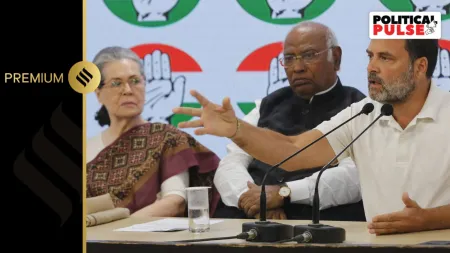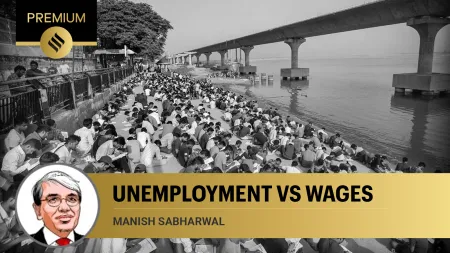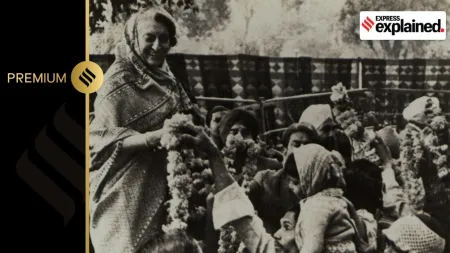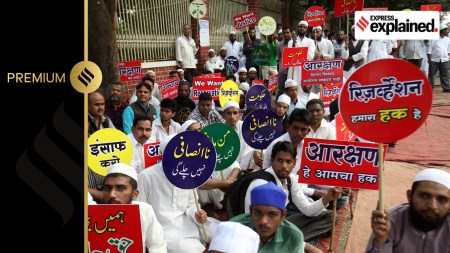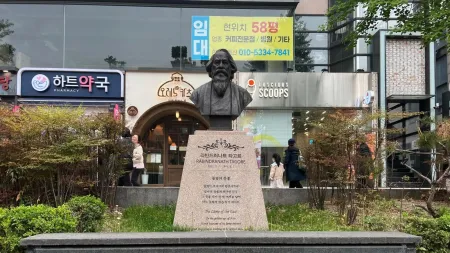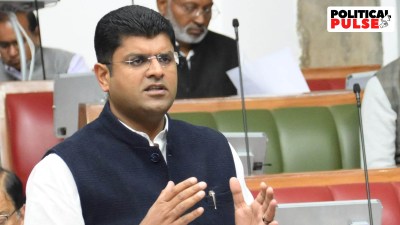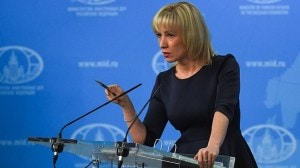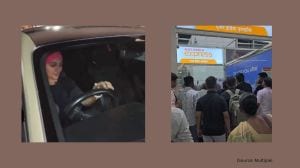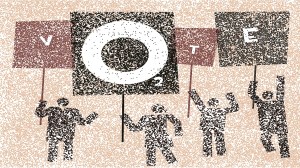- India
- International
Many issues between India and US will require deft diplomatic manoeuvering from S Jaishankar
Can Jaishankar persuade the US authorities to recognise that skilled immigration restrictions may not help Americans get jobs?
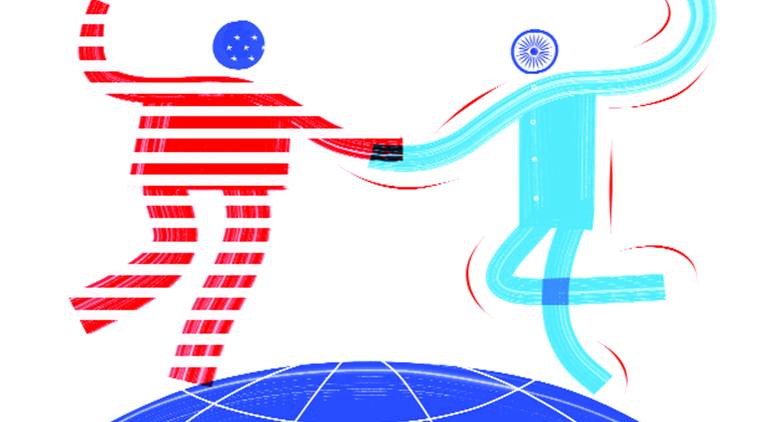 In a pre-election season when Trump is motivated to trumpet his toughness on unfair trade relationships, the state of Indo-US trade ties remain particularly vulnerable. (Illustration by C R Sasikumar)
In a pre-election season when Trump is motivated to trumpet his toughness on unfair trade relationships, the state of Indo-US trade ties remain particularly vulnerable. (Illustration by C R Sasikumar)
“I am reasonably convinced of the powers of my persuasion.” — External Affairs Minister, Subrahmanyam Jaishankar.
The minister was speaking to an audience at the Centre for Strategic and International Studies, in Washington, on India’s decision to purchase the S-400 air defence missile system from Russia, and his efforts to avoid getting hit with American penalties. Ordinarily, countries doing business with Russia run the risk of sanctions from US Congress under the 2017 Countering America’s Adversaries Through Sanctions Act (CAATSA).
Methinks, the honourable minister claims too much credit. An essential attribute of any good diplomat is self-confidence. While I hold Jaishankar in high regard — and yes, yes, I know he has sold his soul trying to justify the Article 370 abrogation, but putting lipstick on a pig is his day job — somehow I am not as persuaded as he is about his powers of persuasion. The truth of the matter is that there is a loophole in CAATSA: The US president can waive the sanctions if it is in the national security interests of the US and the president can determine that the errant country is otherwise cooperating with the US on matters critical to US interests.
Now, this is where Jaishankar caught a break. The US president himself is possibly the biggest threat to US security interests. In addition, he seems to have a fascination with Russia and deep fondness for its leader. America is gearing up for an upcoming election — and given that Donald Trump was only too happy to accept help from the Russians in winning the last election — it may not be entirely coincidental that he is not too keen on stymying one of Russia’s most important arms deals. After all, Russia continues to be a lynchpin in the misinformation campaigns that will inundate the US in coming months. In other words, minister Jaishankar, with all due respect, should cede all credit directly to the US president. Jaishankar’s powers of persuasion, while amazing in other circumstances, may not be the pivotal force here. Dealing with Russia was a reasonable bet for India to take — and, for now, the gamble has paid off even at the price of American democracy being undermined.
Now that I have got that off my chest, here are some substantive issue areas where it would be appropriate for Jaishankar to be putting his plenipotentiary powers of persuasion to the test.

To get things rolling, let’s talk trade. Earlier in the year, after India imposed higher tariffs on some US goods, Washington withdrew a key trade privilege for India. Trump complains that India’s taxes on imports are too high. He has described India as the “king of tariffs”. The reality is that, for a change, he is right. India’s average tariff rate in 2018 was 17.1 per cent. The tariffs on Harley-Davidsons — a product that Trump is particularly fussed about — used to be 100 per cent. And let’s not even mention American walnuts — with a whopping 120 per cent tariff. In comparison, the US, Japan and the EU had average tariff rates between 3.4 per cent and 5.2 per cent. India’s rates are high even in comparison with other emerging market nations, Brazil, China and South Africa, all averaging between 8 per cent and 14 per cent.
In a pre-election season when Trump is motivated to trumpet his toughness on unfair trade relationships, the state of Indo-US trade ties remain particularly vulnerable.
Separately, it seems that the US and China are in talks to resolve their longer and more contentious trade dispute. In the latest round of trade talks, the US said it would suspend a tariff hike on Chinese goods and Trump announced that China had agreed to a “very substantial phase one deal”. India, in the meantime, has done little to take advantage of the US-China trade tensions to further its own interests. Nevertheless, here is a persuasive persuasion opportunity for Jaishankar to make up for that lapse. What can he and his team do to help reach a trade truce with Trump that meets India’s objectives, make Trump look like a hero to his base and put China on the spot?
Next, let’s consider a different thorny issue. This one has to do with the thousands of Indian IT professionals and students who face an uncertain future in the US. The Trump administration has vacillated about its position on H1B visas. In June, there were plans to cap the visas and then two weeks later, the officials presiding over it walked away from such plans. However, the administration has consistently presented itself as the keepers of American jobs who seek to limit immigration to the US across the board. Many Indian professionals who have been in the US for years and have made a home in the country live with the uncertainty that they might have to pack up and leave.
Can Jaishankar persuade the US authorities to recognise that skilled immigration restrictions may not help Americans get jobs. Instead, such short-sighted measures may drive firms to relocate their operations outside the US causing losses of jobs and revenues overall? A study by Britta Glennon of the Wharton School helps make that point.
To pick a third area, Jaishankar might want to closely monitor the topsy-turvy direction of American politics as it unfolds over the coming year. Given the uncertainties of the impeachment inquiry against Trump that is unfolding and the fiercely divisive elections ahead in 2020, it will be a major feat of tap dancing that will be required to build relationships with the Democrats, from Nancy Pelosi to the candidates lining up to take on Trump. Of course, all this must be done while continuing to extract concessions from Trump in parallel. Cozying up to Trump’s sworn enemies, the Democrats, is bound to invite his wrath.
If self-confidence, as I have noted earlier, is an essential attribute of a good diplomat, tap dancing skills are even more essential. I think the best advice to Jaishankar is probably from Trump himself: “Don’t be a tough guy. Don’t be a fool!” (Yes, he actually wrote that in his letter to Turkey’s Recep Erdogan.) Perched in a school that has probably produced more diplomats than any other, I can confidently suggest that this is about the best lesson any diplomat can take away. India’s top diplomat, surely, has his work cut out for him and quite a few ways in which he can test his power to persuade. And I am sorry, he doesn’t have much time for lessons in
tap dancing.
(The writer is Dean of Global Business at The Fletcher School at Tufts University, founding executive director of Fletcher’s Institute for Business in the Global Context and a non-resident senior fellow of Brookings India)
This article first appeared in the October 21 print edition under the title ‘Tap dancing lessons’
EXPRESS OPINION
More Explained
May 09: Latest News
- 01
- 02
- 03
- 04
- 05


